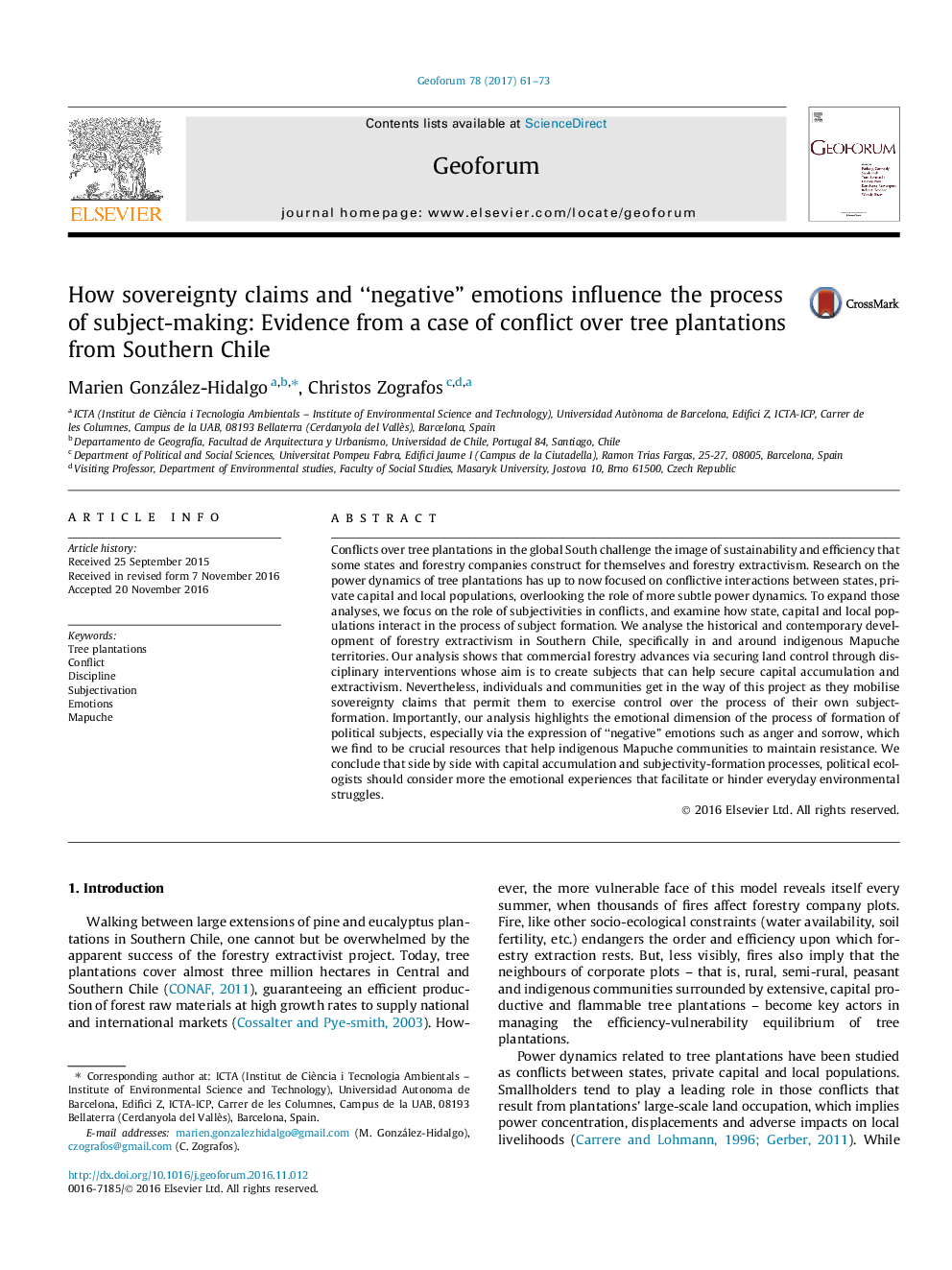| کد مقاله | کد نشریه | سال انتشار | مقاله انگلیسی | نسخه تمام متن |
|---|---|---|---|---|
| 5073490 | 1477111 | 2017 | 13 صفحه PDF | دانلود رایگان |
عنوان انگلیسی مقاله ISI
How sovereignty claims and “negative” emotions influence the process of subject-making: Evidence from a case of conflict over tree plantations from Southern Chile
ترجمه فارسی عنوان
چگونه حاکمیت ادعا می کند و منفی؟ احساسات در فرآیند سوژه تاثیر می گذارند: شواهدی از یک مورد درگیری در مورد کاشت های درخت از جنوب شیلی
دانلود مقاله + سفارش ترجمه
دانلود مقاله ISI انگلیسی
رایگان برای ایرانیان
کلمات کلیدی
موضوعات مرتبط
علوم انسانی و اجتماعی
اقتصاد، اقتصادسنجی و امور مالی
اقتصاد و اقتصادسنجی
چکیده انگلیسی
Conflicts over tree plantations in the global South challenge the image of sustainability and efficiency that some states and forestry companies construct for themselves and forestry extractivism. Research on the power dynamics of tree plantations has up to now focused on conflictive interactions between states, private capital and local populations, overlooking the role of more subtle power dynamics. To expand those analyses, we focus on the role of subjectivities in conflicts, and examine how state, capital and local populations interact in the process of subject formation. We analyse the historical and contemporary development of forestry extractivism in Southern Chile, specifically in and around indigenous Mapuche territories. Our analysis shows that commercial forestry advances via securing land control through disciplinary interventions whose aim is to create subjects that can help secure capital accumulation and extractivism. Nevertheless, individuals and communities get in the way of this project as they mobilise sovereignty claims that permit them to exercise control over the process of their own subject-formation. Importantly, our analysis highlights the emotional dimension of the process of formation of political subjects, especially via the expression of “negative” emotions such as anger and sorrow, which we find to be crucial resources that help indigenous Mapuche communities to maintain resistance. We conclude that side by side with capital accumulation and subjectivity-formation processes, political ecologists should consider more the emotional experiences that facilitate or hinder everyday environmental struggles.
ناشر
Database: Elsevier - ScienceDirect (ساینس دایرکت)
Journal: Geoforum - Volume 78, January 2017, Pages 61-73
Journal: Geoforum - Volume 78, January 2017, Pages 61-73
نویسندگان
Marien González-Hidalgo, Christos Zografos,
